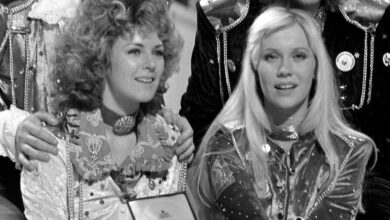As Bosnian Serbs mark controversial national day, US warns celebration amounts to ‘criminal offense’

The United States on Tuesday warned that ongoing celebrations of a Bosnian Serb self-proclaimed national holiday were in violation of Bosnia’s constitution and a 1995 peace agreement, and as such amounted to a criminal offense.
In a statement, the U.S. embassy in Sarajevo urged Bosnia’s legal authorities to “investigate any violations of law” related to the marking of Jan. 9 as the day of the Republika Srpska entity, which is what the part of Bosnia run by ethnic Serbs is called.
“The issue is not the celebration of the holiday, but rather the decision to do so on January 9,” the statement said.
The Jan. 9 holiday commemorates the date in 1992 when Bosnian Serbs declared the creation of their own state in Bosnia, igniting the country’s devastating four-year war that killed more than 100,000 people.
During the war, Bosnian Serbs expelled and killed Bosniaks, who are mostly Muslims, and Croats from the territories they controlled.
The conflict ended in 1995 in a U.S.-brokered peace agreement. The so-called Dayton accords created Serb and Bosniak-Croat entities in Bosnia, held together by weak joint central institutions.
Bosnian Serbs, however, have sought to gain as much independence as possible. Nationalist pro-Russian leader Milorad Dodik has openly called for secession from Bosnia, defying U.S. and British sanctions imposed over his policies.
On Monday, two U.S. fighter jets flew over Bosnia in a demonstration of support for the Balkan country’s territorial integrity.
Tuesday’s planned celebrations in the northwestern town of Banja Luka include a parade of police forces. Simultaneous fireworks will be held in the evening in Bosnian Serb towns and in Belgrade, the capital of neighboring Serbia.
Serbia’s populist leader Aleksandar Vucic has congratulated Dodik on the holiday, pledging support to Bosnia’s territorial integrity but also complaining of alleged efforts to “wipe out the existence of Republika Srpska.”
Serbia, Vucic said, will “strongly resist any annulment or humiliation of Republika Srpska.”
Vucic is a former ultranationalist who support the aggression against non-Serbs in the former Yugoslavia during the 1990s. He now says he is pro-European but Dodik remains a close ally and the two meet on a regular basis.
The Organization for Security and Cooperation in Europe also last week warned that the designation of Jan. 9 as Republika Srpska’s national holiday amounted to an “act of discrimination” and was unconstitutional.
Bosnia’s Constitutional Court has ruled against the date in the past.
Dodik has dismissed Western criticism, saying that the Serbs have the right to celebrate an own holiday as they choose. At a ceremony on Monday, he reiterated that the Serb goal remains a “Serb state in these areas.”
Western countries fear that Russia could try to stir up trouble in the Balkans to avert attention from the full-scale invasion of Ukraine, which was launched by Moscow nearly two years ago. Dodik is a Kremlin ally.
Bosnia is seeking entry into the European Union, but the effort has been stalled because of slow reform and inner divisions.





